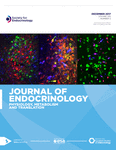The gut microbiome: the role of a virtual organ in the endocrinology of the host
- 1School of Biosciences, Cardiff University, Cardiff CF10 3AX, UK
2Department of Hepatology and Gastroenterology, Imperial College London, St arys, Norfolk Place, London W2 1NY, UK
- Correspondence should be addressed to J R Marchesi; Email: marchesijr{at}cardiff.ac.uk
Abstract
The human microbiome contains a vast array of microbes and genes that show greater complexity than the host's own karyome; the functions of many of these microbes are beneficial and show co-evolution with the host, while others are detrimental. The microbiota that colonises the gut is now being considered as a virtual organ or emergent system, with properties that need to be integrated into host biology and physiology. Unlike other organs, the functions that the gut microbiota plays in the host are as yet not fully understood and can be quite easily disrupted by antibiotics, diet or surgery. In this review, we look at some of the best-characterised functions that only the gut microbiota plays and how it interacts with the host's endocrine system and we try to make it clear that the 21st-century biology cannot afford to ignore this facet of biology, if it wants to fully understand what makes us human.
- Received in final form 3 July 2013
- Accepted 5 July 2013
- Made available online as an Accepted Preprint 5 July 2013
- © 2013 Society for Endocrinology











